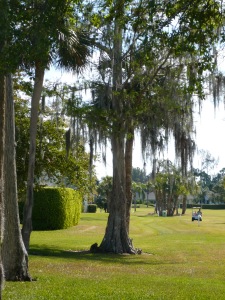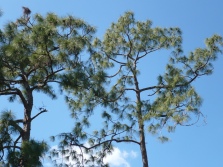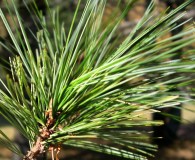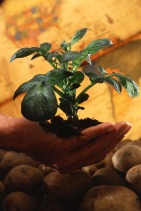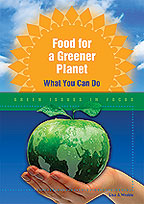 How do you decide–day by day or week by week–whether you’ve been productive? When we work for someone else, the tasks are spelled out one way or another. Meeting deadlines, reaching the bottom of an in box, completing a project, preparing for a presentation. We often spend the day answering phone calls and emails and leave at 5 (or 6) p.m. knowing we’ll be paid for a full day of work.
How do you decide–day by day or week by week–whether you’ve been productive? When we work for someone else, the tasks are spelled out one way or another. Meeting deadlines, reaching the bottom of an in box, completing a project, preparing for a presentation. We often spend the day answering phone calls and emails and leave at 5 (or 6) p.m. knowing we’ll be paid for a full day of work.
 Perhaps, as I once did, you spend your evenings and weekends writing (or pursuing some creative project) hoping one day you’ll eventually get to quit your “day job.” Or, perhaps you are now a self-employed or freelance writer (or artist or musician or …) and so your progress fall squarely on your own shoulders.
Perhaps, as I once did, you spend your evenings and weekends writing (or pursuing some creative project) hoping one day you’ll eventually get to quit your “day job.” Or, perhaps you are now a self-employed or freelance writer (or artist or musician or …) and so your progress fall squarely on your own shoulders.
How do you measure that your time is well spent? Writers often talk of word count. When I coach writers this concern for daily output seems to cause tremendous anxiety. It’s true that a book length project is especially daunting. (Not to mention the misconception that it’s completed in two rounds–draft and revision–when my published projects have taken anywhere from five and up.)
It’s rare that I track my word count during each writing session so when asked, “How much do you write each day? Each week?” I have no idea. I write as I always have–allowing sentences and paragraphs and pages to stack up. In the end, you are not “done” when you reach the 70,000 word target for your novel anyway. You simply have your draft and then can begin the real work of shaping it into a finished product.
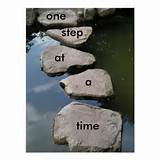 It wasn’t until I participated in National Novel Writing Month (NaNoWriMo) in November and then CampNaNoWriMo, that I realized why my coaching clients were stuck on this word count thing. For NaNoWriMo the goal is to draft 50,000 words in 30 days. That equates to 1667 words per day. That amounts to 6 or 7 manuscript pages (double-spaced) each day.
It wasn’t until I participated in National Novel Writing Month (NaNoWriMo) in November and then CampNaNoWriMo, that I realized why my coaching clients were stuck on this word count thing. For NaNoWriMo the goal is to draft 50,000 words in 30 days. That equates to 1667 words per day. That amounts to 6 or 7 manuscript pages (double-spaced) each day.
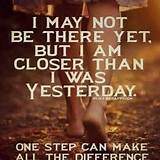 Now I get how overwhelming a focus on word count can be to new writers. Now I understand why the thought of sitting down to write can be daunting. Now I see how important it is to place output into perspective. Do this: First, sit down to write. Write a scene and note how long it took. One hour? Thirty minutes? Fifteen minutes? Now, look at the output. How many pages? How many words? It’s true that every scene and every writing session will vary. But knowing what you accomplished in whatever time it took will help you see the words adding up. Second, ask yourself how many sessions you can fit into your week. Two? Three? Even one will help you make progress.
Now I get how overwhelming a focus on word count can be to new writers. Now I understand why the thought of sitting down to write can be daunting. Now I see how important it is to place output into perspective. Do this: First, sit down to write. Write a scene and note how long it took. One hour? Thirty minutes? Fifteen minutes? Now, look at the output. How many pages? How many words? It’s true that every scene and every writing session will vary. But knowing what you accomplished in whatever time it took will help you see the words adding up. Second, ask yourself how many sessions you can fit into your week. Two? Three? Even one will help you make progress.
During CampNaNoWriMo in April, the word goal is flexible. It’s the end of season for me and very busy so I selected the lowest goal: 10,000 words. I wanted the challenge to make time to work on a new novel idea even in the midst of other commitments. Putting this into perspective, I needed to write 334 words per day to “win.” That’s only 1.5 pages (double-spaced MS format) OR not even a full single-spaced typed page. But, I didn’t plan to write every day. The first weekend, I wrote as I normally did and produced just over 2,000 words in one sitting of several hours. That was 1/5 the month’s goal and the equivalent of writing for 6 days. Setting time aside twice per week, I met my goal. (Actually, I ended up meeting this goal plus wrote scenes for a second work-in-progress for over another 5000 words.)
 I put this into perspective, thinking: If I can write everyday (on this one project), imagine what I’d accomplish in a month! When you do the math and put your productivity into perspective, it’s a lot easier to see what you’re capable of–which makes it easier to commit to writing on a regular basis. In the end, it’s not how many words or pages you write per day or per week; it’s that the paragraphs, scenes, and pages add up. Getting started is the hard part. Once you do, it becomes easier. Until you do, commit to writing just one sentence a day. (I’ll bet you’ll find it hard to write just one.)
I put this into perspective, thinking: If I can write everyday (on this one project), imagine what I’d accomplish in a month! When you do the math and put your productivity into perspective, it’s a lot easier to see what you’re capable of–which makes it easier to commit to writing on a regular basis. In the end, it’s not how many words or pages you write per day or per week; it’s that the paragraphs, scenes, and pages add up. Getting started is the hard part. Once you do, it becomes easier. Until you do, commit to writing just one sentence a day. (I’ll bet you’ll find it hard to write just one.)

